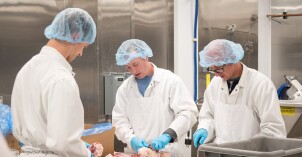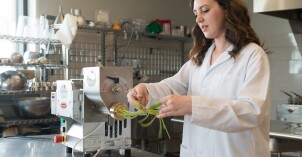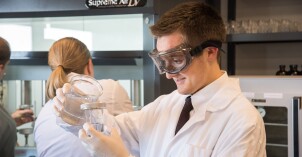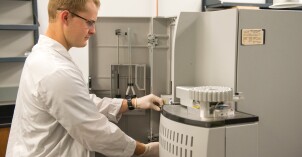Nutrition and Dietetics Introduction
With a Nutrition/Dietetics degree, you will learn scientific and engineering skills to study food, including how to preserve and process the makeup of food. Some of these include:
- Careers in food product development, processing, quality assurance, and food safety regulation, or for graduate studies.
- An interest in dietetics to enroll in the Food Science program, with the possibility of transferring to the dietetics program at Idaho State University (ISU).
- A 3+1 program with ISU, allowing you to complete three years at BYU-Idaho and a final year at ISU for a Dietetics degree, or you can finish the Food Science degree at BYU-Idaho with a strong emphasis on nutrition.

Request More Information
Getting Started in this degree
Graduate Career-Ready
BYU-Idaho Graduate Salaries
BYU-Idaho alumni from this program report an average early-career salary of around $48,000 to $55,000. [Faculty may add context about typical employers or industries where graduates earn these outcomes]
Common Career Paths
Graduates from this major pursue a variety of entry-level roles that build toward more advanced or specialized positions. [Faculty can highlight the career options most relevant to students in their program]
Preparation for Grad School
This degree prepares students for graduate studies by building the academic foundation and skills needed for advanced programs. [Faculty may specify common graduate pathways or disciplines students frequently pursue]
AI in Academics
At BYU-Idaho, we are strategically integrating Artificial Intelligence to enhance academic excellence and prepare our students for an evolving world.
Related Majors
Next Steps With the Department of Agriculture and Life Sciences
Request more information about the [program name] and learn how BYU-Idaho can help you reach your goals.



